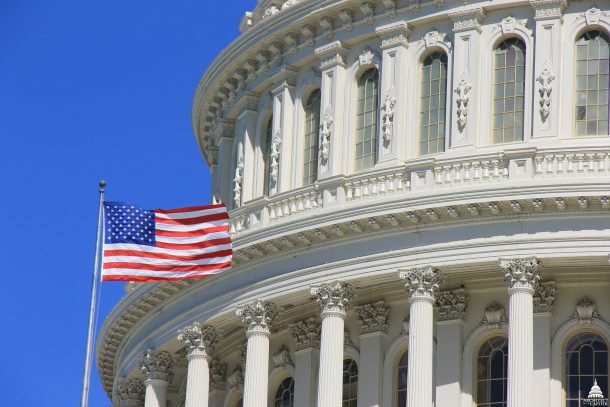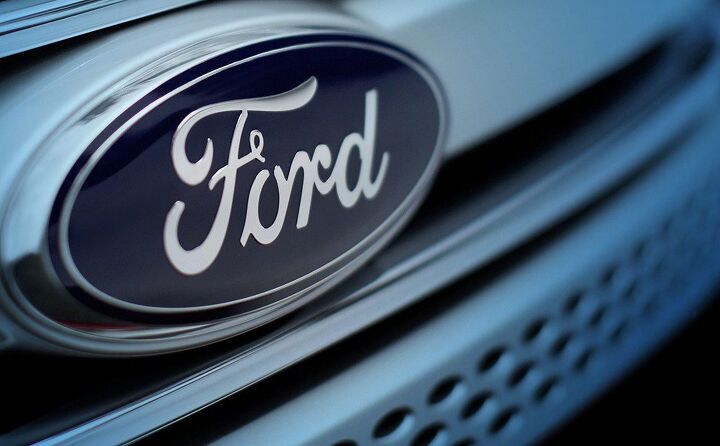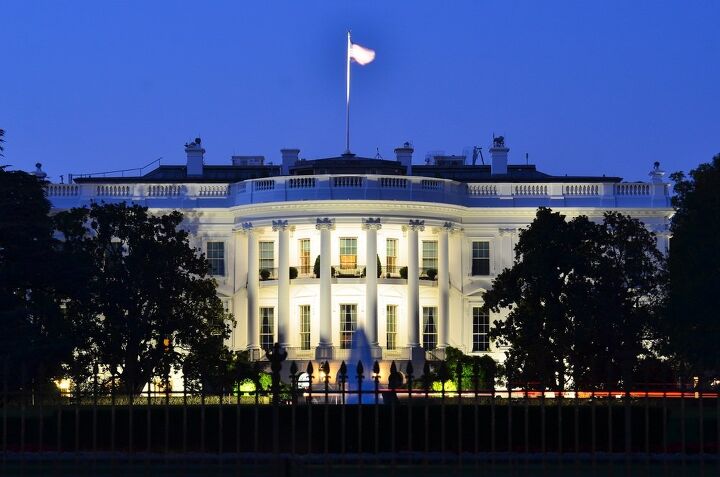#IndustryNews
New Bill Aims to Boost America's EV Adoption
Representative Debbie Dingell (D-MI) introduced new legislation on Wednesday in a bid to improve the uptake of electric vehicles in the United States. The bill, known as the USA Electrify Forward Act, would appropriate $2 billion annually for the U.S. Department of Energy’s Advanced Technology Vehicles Manufacturing Incentive Program between 2021 and 2035.
Dingell cited a May 2019 AAA survey that reported just 16 percent of Americans as saying they would consider an electric vehicle for their next automotive purchase, claiming something needs to be done address EV pricing, repair costs, and range. The primary focus of the bill is to help in the development and manufacturing of advanced battery technologies and anything else that might help get more Americans into EVs.
French Tax on Inefficient Vehicles Riles Automakers
Next year, the European Union plans to adopt aggressive new rules that would see automakers fined if their total annual vehicle sales exceed predetermined carbon limits. Obviously automakers aren’t thrilled with the new fines and higher emission mandates, but France is facing additional criticism for its decision to take things a step further.
France’s parliament has adopted a new law penalizing cars that emit carbon dioxide above a certain threshold while still adhering to EU regulations. Vehicles failing to adhere to the French rules will be subject to a 20,000 euros ($22,240) tax in 2020, nearly twice the current fine. Meanwhile, the country is mulling the possibility of culling EV incentives — an odd move, considering its aim to transition its populace to zero-emission vehicles.
Report: Connected Cars Already Know Everything About You
Vehicular privacy is one of those things we never thought we’d have to gripe about but, as automotive connectivity becomes the norm, it’s become one of the most nagging issues in the industry.
Taking a cue from tech giants like Google, Facebook, and pretty much every other website you’ve ever connected to, automakers have begun leveraging customer data on a massive scale. Always-on internet connections exacerbated this problem (feature?), but it’s extremely difficult to tell exactly what kind of information is being shot up into the cloud before ending up at a manufacturer’s data center.
While we’ve seen cars hacked for the purpose of assessing how they’d stand up to malicious entities bent on wreaking havoc, few have attempted to decode the surplus of information emitted by your vehicle. We know this because people would probably be pretty upset to learn of the pathetic level of anonymity currently afforded to them. Despite spending tens of thousands of dollars on a new vehicle, privacy is rarely considered standard equipment.
European Cartel Probe Suspects German Automakers of Illegal Agreements
While Europe appears infinitely suspicious of German automakers, it hasn’t been nearly as eager to cuff suspects and cart them off to the slammer. Considering how unappealing Japan’s treatment of a former Nissan employee happened to be with the general public (regardless of his guilt/innocence), that’s probably wise. Slow and sure is the ideal strategy for tackling corporate corruption — it just has the unfortunate consequence of dragging everything out.
In 2018, BMW, Daimler, and Volkswagen Group became the focus of an investigation aimed at uncovering illegal cooperation. Allegations going back to 2017 stipulated the three had coordinated on the rollout of clean emissions technology (specifically AdBlue); at the same time, Germany was under heavy scrutiny for the leeway it was giving automakers after VW’s diesel emission scandal. Before long, claims arose that Germany’s manufacturers had been effectively running an automotive cartel for decades, with supporting evidence slowly mounting.
FCA's Manley to Helm European Automobile Manufacturers' Association
The Board of Directors of the European Automobile Manufacturers’ Association (ACEA) has elected Michael “Mike” Manley, CEO of Fiat Chrysler Automobiles, as its new leader. Tapped to replace PSA Group CEO Carlos Tavares as chairman on January 1st, Manley is currently engaging in some mobility related foreplay to get us hot and bothered.
“As an industry we want to take the lead in transforming mobility in a way that puts the consumer first, but also enables us to remain globally competitive and resilient,” Manley said in a prepared statement.
Meanwhile, the ACEA’s stated priorities for the coming year revolve around “developing a pathway for the transition to carbon-neutral road transport, while ensuring the economic sustainability of the European auto sector.” Presumably, those are goals shared by the English businessman who’ll be taking the reins in 2020 — but he’ll have to manage environmental progress with market realities while doing so.
GM Leaves Russia, Bought Out by AvtoVAZ
Russia’s largest automotive manufacturer, AvtoVAZ, announced Monday that it plans to buy General Motors out of its regional joint venture. The duo previously assembled Chevrolet-branded automobiles for the local market; however, GM lost interest after the market took a turn for the worse.
While sanctions from Western nations and falling oil prices upended Russia’s economy a few years ago, it was already headed for hard times. Wages have stagnated and average citizens no longer possess the same level of buying power they held a decade earlier. The Russian Economic Development Ministry predicts just a 1-2 percent growth rate up to 2030 and leadership doesn’t seem terribly interested in improving the situation for the citizenry, deciding instead to raise taxes on just about everything. GM was probably right to get out.
Reductive Design: Ford's Secret Recipe for Affordable Cars?
Despite the average transaction price of your typical automobile climbing higher than ever before, there’s a lot of disagreement as to whether this actually amounts to more spending once inflation has been taken into account. Studies frequently show inflation-adjusted valuations climbing gradually over the years, resulting in MSRPs a few grand higher than what you might have spent in decades prior. Still, newer vehicles tend to have a much greater level of content and the ability to outlast something from 1970, helping to rationalize the difference. Data taken from the U.S. Bureau of Economic Analysis (BEA) actually suggests the average expenditure per vehicle actually peaked in the late 1990s before creeping back down.
Meanwhile, we keep hearing reports about the average transaction price of passenger vehicles settling above $37,000 for 2019. Cross referenced against the BEA data, that’s about $5,000 dearer than in 1999 — once you’ve shifted everything to present-day dollars. Blame people’s inability to say “no” to options, crossover popularity, or anything else you want. It won’t change the problem, especially as the wealth gap continues to widen between the haves and have nots.
Automakers know that sales are stagnating and Ford CEO Jim Hackett thinks he’s come up with a solution — and it’s a familiar one. It’s decontenting time.
Auto Industry Eliminating Jobs to Support Electric Vehicle Tech: Report
With environmentalism sweeping through the automotive industry of late, manufacturers are spending oodles of cash to fund the continued development of electric vehicles. Unfortunately, the are doing this during a period where the developed world’s taste for cars has already reached its zenith — or so it seems. Growth is slowing in markets across the globe and cuts have to be made somewhere if the industry players want to keep their bottom line positioned firmly in the black.
A recent report from Bloomberg, estimated that around 80,000 auto jobs will be eliminated in the coming years as a result of electrification — with the majority concentrated in the United States, Germany, and United Kingdom. Though the onslaught of cuts will not be limited to the developed world, nor entirely the fault of EVs.
New Nissan CEO Examines Renault Alliance (Not the Car)
Nissan’s new chief executive, Makoto Uchida, believes now is the time to reassess its corporate partnership with Renault. In case this is the first automotive-related article you’ve read this year, the Renault-Nissan-Mitsubishi Alliance is sickly. Bizarre financial scandals involving the group’s former chairman Carlos Ghosn ( and others), internal power struggles, serious money troubles — the situation is rife with headaches. But Uchida says the only way to cope is to publicly recognize the elephant in the room and see what can be done.
“The alliance is critical to reach our goals,” Uchida said at Nissan’s headquarters in Yokohama on Monday. “We need to look at what worked within the alliance, and what didn’t, and decide how to go forward.”
Report: China's BAIC Wants to Increase Daimler Stake
A new report indicates that BAIC Motor Corp, Daimler’s primary Chinese joint-venture partner, wants to increase its stake in the company. Currently, BAIC owns 5 percent of the German automaker ( purchased in July) with rumors swirling in October that the firm wanted to increase its investment. There were also claims that Geely was attempting to stand in the way of the prospective deal.
While not Daimler’s main squeeze in Asia from a production perspective, Geely actually owns 9.7 percent of the company — giving it quite a bit of leverage. As such, there were murmurings that Geely put the kibosh on any ideas BAIC had on investing further. Geely has rebuffed the accusation. “We are a long-term investor in Daimler. We do not react spontaneously to any volatility and we support Daimler’s management and their strategy,” the firm explained.
Be that as it may, there appears to be a minor power struggle between the two Chinese companies. Both seem interested in strengthening their influence and happen to find themselves in each other’s way.
Mercedes Confirms Job Cuts in $1.4 Billion Restructuring Plan
On Thursday, Daimler made an announcement confirming earlier reports that it plans to cut roughly ten percent of its management staff as part of a broader restructuring plan. Financial hardship has become a sign of the times for the auto industry. Most sizable manufacturers are coming off an investment spree aimed at developing new-energy vehicles, autonomous driving systems, and connected services. Unfortunately, those commitments came at roughly the same time the world’s largest auto markets started to collectively plateau.
A broad approach no longer seems feasible for all but the absolute largest automakers on the planet. We’ve seen many attempt to downsize through restructuring or by entering inte partnerships with other firms to share costs — sometimes both. Knowing this as well as anyone, Daimler issued two profit warnings this year as Mercedes-Benz was fined $960 million in an emissions-cheating settlement while hemorrhaging cash through EV investments.
Trade War Watch: Report Claims White House Wants to Dictate Where Cars Are Manufactured
The Trump administration has reportedly expressed an interest in deciding where and how automotive manufacturers do their business if they want to secure duty-free deals under the United States–Mexico–Canada Agreement (USMCA) that’s positioned to replace NAFTA. According to Bloomberg, there’s currently a discussion taking place between administration officials, congressional staff, and domestic and foreign automakers regarding the context of the legislation that lawmakers will ultimately have to vote on. The White House is said to want highly specific language that would allow it to select production rules unilaterally.
Considering how messy things have gotten with China, it could be useful to have extremely clear trade language and some direct oversight of businesses with global interests. But critics are worried the strategy could bring U.S. trade policy closer to the rigid policies already in place in the People’s Republic — a country America has attempted to distance itself from due to its ludicrous levels of government intervention.
The real fear is that the government could use this to give one manufacturer better treatment than another — cutting it a sweet deal for building in a politically advantageous area, for example. While plausible, we can’t confirm something that’s largely speculative.
Renault Chairman Gives Himself One Year to Fix Alliance With Nissan
Now that the Renault-Nissan-Mitsubishi Alliance has its upper echelon sorted, the time has come to mend the partnership properly. With the new staffers healthily distanced from the old guard of the Ghosn era, Renault Chairman Jean-Dominique Senard is giving himself one year to fix things before considering the entire issue a “failure, on a personal level, and by our teams.”
Senard didn’t explain the benchmarks for success, and twelve months doesn’t allot much time to right a ship that’s been listing for several years. Rumors exist that Renault may even be looking to ditch Nissan for becoming too much of a burden. Meanwhile, the Japanese automaker’s former CEO, Hiroto Saikawa, estimated the company’s vast restructuring efforts would not significantly improve profitability for at least another year.
However, most of what we’ve heard from Nissan and Renault leadership includes a concerted effort to restore trust within the auto alliance and strengthen industrial ties. Contentious merger talks have also fallen by the wayside and are unlikely to crop up after Renault’s own profitability warning from earlier this month.
Faraday Future Founder Files for Chapter 11
The founder of Faraday Future, Yueting Jia, has filed for bankruptcy and restructuring under Chapter 11 in the United States, according to a statement released by the company. The decision allows Jia (known within the company as “YT”) to address his debts in China, which can be measured billions, so his ownership of FF can be transferred to creditors.
Due to Faraday’s repeatedly broken promises and clandestine way of doing business, we’ve never had an overabundance of faith in the company. While that view hasn’t changed, the corporate statement frames Jia’s U.S. bankruptcy as a positive.
GM Appoints New Marketing Officer After Going Seven Years Without
General Motors is moving Cadillac marketing chief Deborah Wahl up the food chain by appointing her as its global chief marketing officer — a position which has sat unfilled since 2012.
The previous CMO, Joel Ewanick, was removed by former CEO Dan Akerson over a costly Chevrolet-Manchester United sponsorship deal blew up in his face. Officially, General Motors said Ewanick “failed to meet the expectations the company has of an employee” and left the position vacant, distributing its duties among other other employees — primarily Chevrolet’s now-retired CMO Tim Mahoney.
Wahl, 56, joined Cadillac in 2018, helping the brand further distance itself from the botched “Dare Greatly” advertising campaign. However, we’re not yet certain its freshened marketing materials are truly a cut from a different cloth. Several of the new spots carry over the same vague messaging, just with a bit more focus on product. Then again, perhaps the highbrow content is simply going over our heads.






























Recent Comments